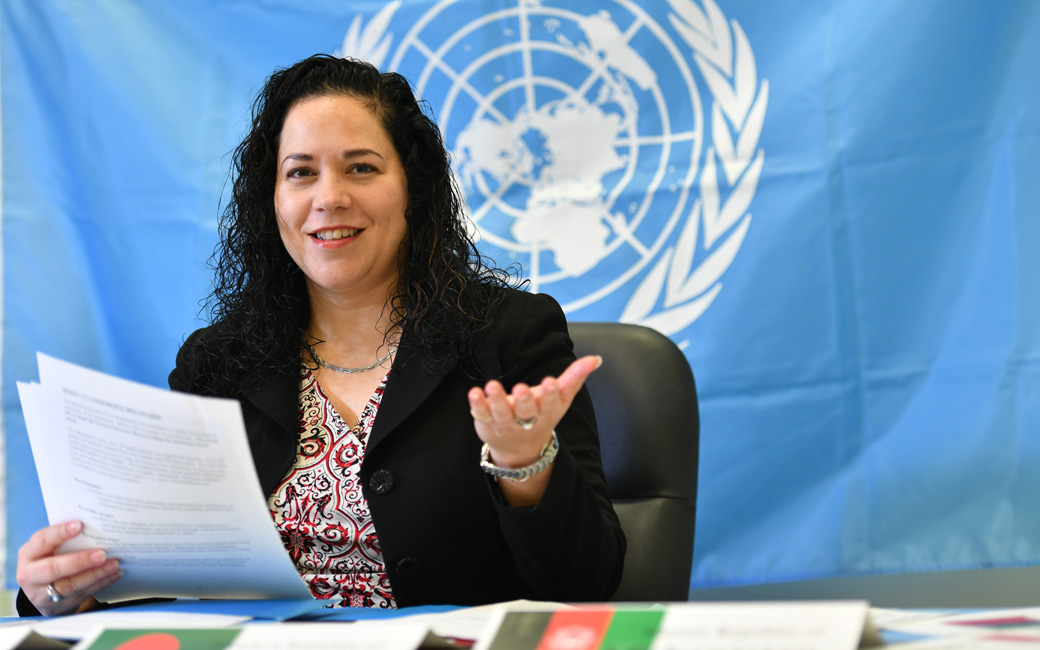Supporting student research
Political science professor and Honors College faculty member Alison McCartney prepares students with valuable and engaging research opportunities.

International terrorism. The impact of the United Nations Population Fund. The effect of the military conflict on children at home and across the world.
Each semester, Honors College students explore a range of topics like these and complete independent research projects. With the help of Alison McCartney, many go on to present their work at regional and national research conferences.
“Honors College faculty are truly involved in teaching these students and preparing them for the next stage of life,” explains McCartney. “It is very different from how students are processed through programs at larger institutions. We are focused on developing student intellect, student interest, and student talent and student skills. These are our drivers.”
“ We are focused on developing student intellect, student interest, and student talent and student skills. ”
TU has stepped up to the plate to help McCartney maintain that focus. “Towson University’s summer research innovation grants have allowed me to further develop my skills and knowledge through my attendance at various conferences on teaching,” she explains. “These opportunities have been critical to learn more about my craft.”
In addition to other teaching and service responsibilities, the 2015 recipient of Towson University’s Outstanding Service Learning Faculty Award also teaches civic engagement. “Our students need to know how to function effectively in society,” says McCartney, who practices what she preaches. When a teacher from one of the poorest high schools in Baltimore County wanted to create a Model United Nations Conference experience but lacked the funding, McCartney stepped in. “With student volunteers, we provided a meaningful learning opportunity. TU students then asked for a class associated with the conference to learn more about global issues, connections between these issues and their communities, and how to effectively work with the communities,” relates McCartney.
She admits that her career has taken a different trajectory based on community and student interests. “I have connected my service to the community with teaching and research in a very fulfilling way.”